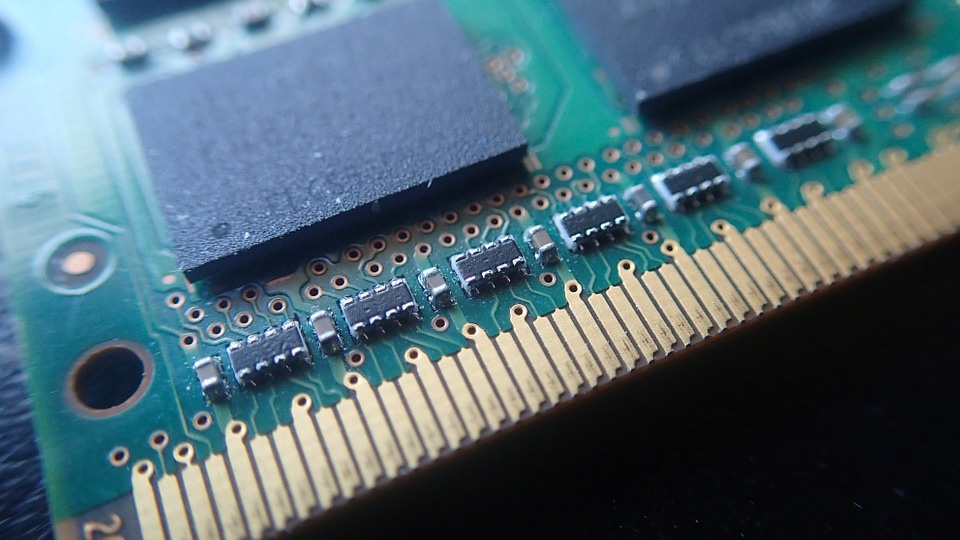What is a RAM Disk and should I use one for gaming?
This temporary performance boost to your PC comes with more headaches than it's worth.

Storage speed (and space, for that matter) has increased tremendously in the last several years. HDD's are nearly obsolete thanks to the advent of SSDs, using either the SATA or M.2 NVMe interface. The M.2 NVMe variety has much faster read and write speeds than SATA SSDs, some as fast as 5,000MB/s (and 7,000MB/s is coming). Prices have been coming down in cost, too, as you can find a 1TB M.2 NVMe SSD for around $100, and faster models like the XPG 8200 Pro 1TB start around $150. SSDs are great.
But they're not the fastest piece of hardware inside your rig. Sure, read speeds don't actually have much of an effect on gaming outside of maybe shaving some seconds off loading times, but if you want something even faster you could try creating something called a RAM Disk. There are several drawbacks to using RAM disks, but we'll get to that. First...
What is a RAM Disk?
Also called a RAM drive, a RAM disk is a virtual storage drive that you can create in Windows with 3rd-party software. Basically, you're telling your PC to reserve a portion of your RAM (eg, your DDR4 memory) as storage space so you can read/write to it like you would an HDD or SSD. RAM can be up to 10 times as fast as the best SSDs.
Decades ago, PCs had next-to-nothing storage capabilities, and the idea of a dedicated hard drive was a dream. The first consumer HDDs were introduced in 1980, had a whopping 5MB of storage, and cost $1,500. (Prior to that, most data was stored on floppy disks.) Not only is that a grain-sized speck of storage space, but HDDs were much slower than the ones we have today. So in an attempt to give their PCs a speed boost and load games and programs faster, people created RAM Disks to get around the speed limitation of HDDs.
What are the benefits of a RAM Disk?
In a sense, a RAM Disk is a type of solid state drive, since it doesn't have any mechanical parts. But when you compare the transfers speeds of RAM to an SSD, RAM is significantly faster.
A single stick of RAM operating at 2666 MT/s (megatransfers per second) is the equivalent of 21,328 MB/s (megabytes per second) or 21.328 GB/s. In comparison, the fastest available consumer SSDs, like the Sabrent Rocket, have a max transfer rate of 5,000MB/s. So, if you need a lightening-fast virtual drive for whatever reason, a RAM Disk would be the way to go. You would see near-instant file read and write times.
That doesn't mean games would load immediately, however. Reading the files off your storage device is only part of the task of loading a game. It's why most SSDs might at best cut load times in half, depending on the game, and why M.2 SSDs don't load games significantly faster than SATA SSDs. All the processing of the file contents is a bigger bottleneck.
The biggest gaming news, reviews and hardware deals
Keep up to date with the most important stories and the best deals, as picked by the PC Gamer team.
What are the drawbacks?
RAM is volatile memory. You can 'save' files to the portion of RAM you designate as storage space, but if your computer crashes due to a power loss, you lose those files. Furthermore, you would never be able to shut your computer off (only power it down in sleep or hibernation mode) because you can't actually store anything on the RAM itself. You have to copy all the important data from your RAM disk to your actual SSD or HDD before turning off your machine or else everything on the RAM disk gets erased.
That also means it takes longer to get everything ready in the first place, and you can't really use a RAM disk for the OS. After loading Windows, you have to load the RAM disk utility and then copy over all the files you want on fast storage to the RAM drive. For a 50GB game, that could mean several minutes of waiting at HDD speeds, or maybe only 10-20 seconds with a fast M.2 SSD. That sort of defeats the purpose of a fast storage solution in the first place. Plus, Windows does a reasonable job of caching games and other frequently accessed applications into RAM in the first place (it's one reason why reloading a level is often faster the second time you do it).
That sort of defeats the purpose of a fast storage solution in the first place.
Another reason why RAM Disks are more trouble than they're worth with modern PCs is that many motherboards only support up to 64GB of RAM—that's total over-kill for regular gaming, and expensive besides. Even if you used most of that as a RAM disk, 50-60GB isn't much compared to most games. Spending a lot of money on RAM instead of just getting a fast 1TB SSD is completely counterproductive to building the best PC with the least amount of money possible.
And what about games like Red Dead Redemption 2? That game hogs 150GB of space. Unless you're using an AMD Threadripper or Intel HEDT platform with 256GB of memory, you couldn't even try to put some games on a RAM disk.
While the speed of RAM disks might seem enticing, the reality is that data loss is a serious concern, and there are lots of drawbacks. RAM Disks are really only ideal if you're using a program that doesn't normally use RAM as cache, and if you don't care about losing the files stored on the RAM disk.


